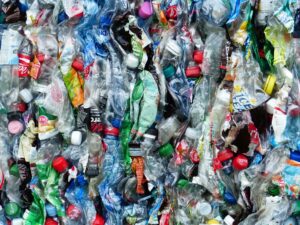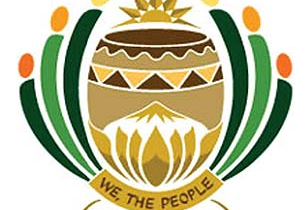As the world moves towards an international, legally binding instrument on plastic pollution, IUCN and GRID-Arendal have partnered in a new project called AFRIPAC, aimed to empower five (African) nations´ negotiating skills for a strong Global Treaty on plastic pollution.
This two-year project, launched in January 2023, will empower negotiators and increase collaboration in Cabo Verde, Guinea Bissau, São Tomé and Príncipe, Senegal, and Sierra Leone. IUCN and GRID-Arendal will support these Small Island Developing States and developing countries for increased capacity in global negotiations. The first workshop takes place in Freetown in Sierra Leone on Thursday 30th and Friday 31st of March 2023. This project aims to support the five countries to:- Ensure global commitments to end plastic pollution are strengthened,
- Improve National action plans and policies, and
- Align global policy to the national and regional instruments to prevent marine litter
Main outcomes
There are two main outcomes desired for the project: (1) Target States and stakeholders, including women, will play an active role in Intergovernmental Negotiating Committee (INC) negotiation processes; and (2) Plastic pollution mitigation processes of Target States will integrate Circular Economy (CE) principles in Waste Management (WM) practices. The proposed legal instrument includes Circular Economy and Waste Management as the main action points to mitigate and manage plastic pollution. Dr. Alexandra Harrington, Chair, Plastic Pollution Task Force, IUCN World Commission on Environmental Law (WCEL) says IUCN’s AFRIPAC project aims to provide a comprehensive approach to build negotiation capacity in West Africa. “We are focusing on knowledge transfer, building a strong understanding of the regime interaction between the Treaty and existing international treaties, and working with the countries to enhance their national action plans. Highlighting the roles of the circular economy, waste management, and the plastic lifecycle from a legal perspective are integral to this work as we move toward an international legally binding instrument to prevent plastic pollution globally.” Global Treaty to end plastic pollution In March 2022, 175 nations agreed to develop a legally binding agreement to end plastic pollution by the end of 2024, prompting a major step towards reducing plastic pollution. The resolution addresses the full lifecycle of plastic, including its production, design and disposal. Negotiations for the Treaty will have to strike a balance between an effective legal, regulatory and scientific agreement for tackling plastic pollution and ensuring political support and participation by all States and sectors. “Over the past decades GRID-Arendal, in partnership with UNEP, has worked with several African nations, regional seas conventions and other stakeholders. We recently published several marine plastics pollution outputs such as the “African Marine Litter Outlook” and “Preventing and Managing Marine Litter in West, Central and Southern Africa”, providing an overview of marine litter and circular economy activities on the African continent. We look forward to working with IUCN and stakeholders to strengthen knowledge and negotiating capacity towards an international legally binding instrument on plastic pollution,” says Clever Mafuta, Head of Waste & Marine Litter Programme, GRID-Arendal





